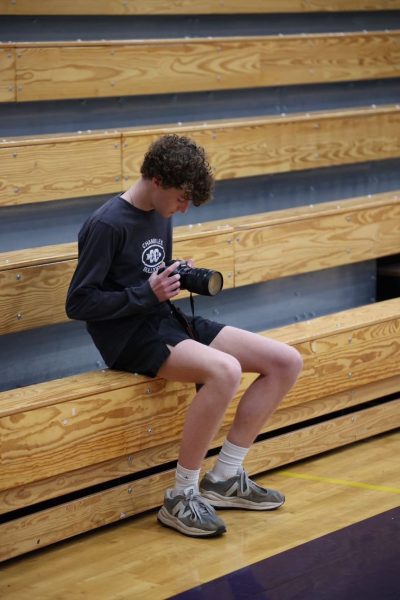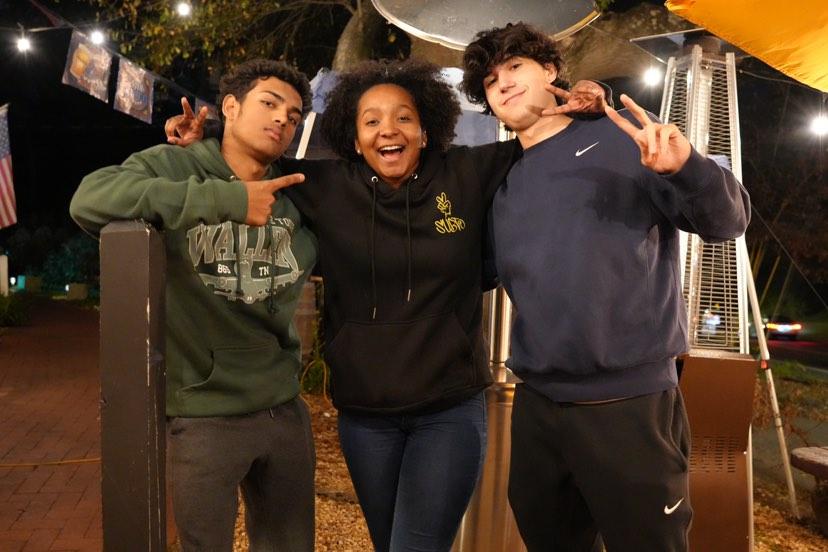Some students at Chamblee High School manage both a job and schoolwork; as a result, they see their friends after school, get paid, and experience more of what being an adult is like. However, some of these students seek to do more with their skills, beyond entering the workforce—they start their own businesses.
“We run a ‘home-selling’ company. We find houses that are in bad areas with distressed owners that need to sell. Then, we put in an offer and we help connect them with people who can [flip] the house, and get it to a better situation,” said Henry Farnell (‘25).
Inspiration is a driving force behind these students’ projects, some stemming from personal experiences. One such example is the creator of the “STEM Swag Box,” Temple Lester (‘25).
“When I was seven or eight, I went to a science camp and was the only girl and one of a few black people. The camp counselors called me their ‘princess,’ and I didn’t want to be a princess at science camp. So, I stood up for myself and learned that [this gender and racial disparity] was an issue. [I] decided that [my business] is what I can do to promote a [more equal] society in STEM,” said Lester.
Students have found that there can be many advantages to starting and owning your own business.
“Pros would definitely be the money, getting to practice my craft as much as I can, and having a space where I feel comfortable, know what I am doing, and feel like the boss,” said Asia Prejean (‘25), who braids hair as a business.
As a student, you try out different activities that you’re interested in to find what you are best at. Some businesses originate from such interests.
“[My business] is kind of a hobby to me [since] I really enjoy doing it. Even if I wasn’t making money, I would still love to do it,” said Henry Lehmann (‘25), a sports photographer and videographer.
Being in charge of a business, especially as a student, has its drawbacks, however.

“It’s hard being a student—having to manage going to school and doing homework, knowing I also have to go to events or have meetings to do. Having to manage my work and time very well [is a con]. I also like to go out and am a very social person, so I have to find time to have fun and have free time to be with my friends,” said Lester.
Here are some tips that these current and future entrepreneurs give to those who want to start a business:
“[Just] go for it. You’re young and you’ve got time to figure it out—even if it doesn’t work, you can keep trying new stuff,” said Lehmann.
Others suggest always keeping a positive outlook on your endeavor.
“Practice your craft and go for the business, because the worst that can happen is [that] it fails,” said Prejean.
With such an immense responsibility as a young student, you won’t always be able to do everything yourself.
“We were lucky enough to find ourselves a great mentor. That adds to our credibility, [and sometimes] you need a mentor to be able to succeed,” said Farnell.
In this new age of technology, most students use Instagram as a means of communication—and in this case, to advertise and promote their businesses.
“I tell my friends or other people to like [my posts], comment on them, and repost them so that [my business] gets out more,” said Prejean.
In the end, owning a business at a young age and being self-employed is rewarding; nevertheless, it comes with its challenges.
“My advice for [starting a business] is that it’s solving a problem that you care about,” said Lester. “Find something that you want to fix in the world and go deeper into it. Find a problem that really connects to you and that certain niche and just go with it and it will happen from there.”








